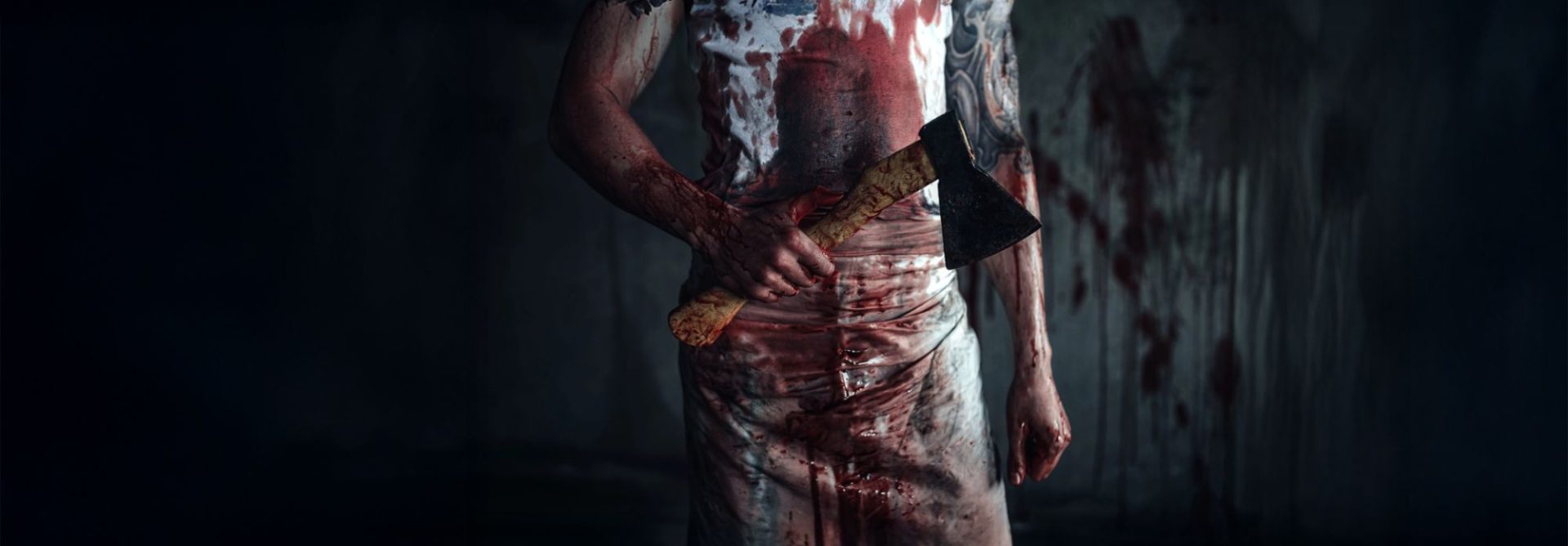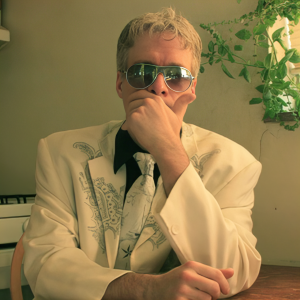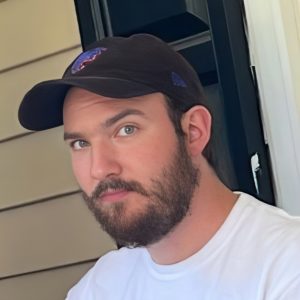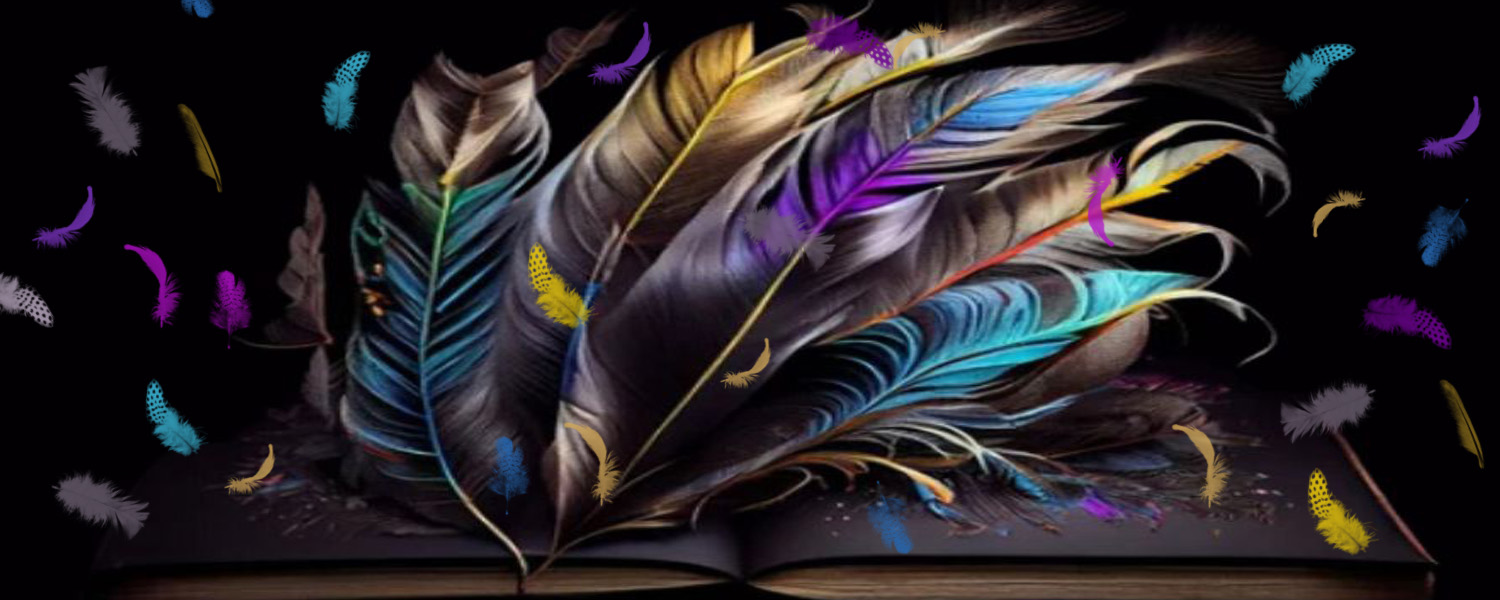Look, we all get tired of actors repeating the same folksy anecdote on late-night talk shows, NPR interviews, and whatever the new hip podcast of the hour might be. It would be easy to dismiss Public Relations as just another generational grift—like social media “bringing us together” or targeted advertising making the purchasing experience more convenient for users. But Public relations—the art of bullshit for power—can be traced, in one form or another, back to the times of Ceasar. His chief political advisor, Cassius Stultus, was known to have started his meetings with the mighty Julius by employing the famous phrase hoc stercus tauri est sed—this is bull dung but.
What a word, but. That one little world contains all the power of a proper PR campaign. Sure, a pop star ran over a migrant while high on poppers, but they donated $15 million to a charity that gives puppies to disabled children. Sure, that award-winning director did fondle young actresses during their auditions, but he fully financed thirty-six independent documentaries and feature films on a wide range of social issues, ranging from the conflict in the Middle East to the secret lives of trans Mormons. Alright, you got us: the senator did embezzle $11 million from one of his constituents’ action committees earmarked for inner-city public school equity grants, but he said he was sorry and donated a chunk of those stolen funds to women-owned businesses throughout the tri-state area. But I digress.
On the day I got my big break at Onzin Public Relations, I was having a coffee in Promenade Park. A group of pigeons gathered by my feet. They danced around my ankles, merrily clucking up, pausing their prancing only to peck on a day-old poppy bagel. I enjoyed their company because they were harmless. They enjoyed mine because back then, I was harmless, too.
Two skinny teenagers in black wool caps sat on a neighboring bench listening to music on their earpods while slurping whipped-cream iced coffee shakes. They giggled, snorted, and smirked wryly while texting one another smiley-face emojis to indicate to the other they were happy.
I put on my sunglasses so they couldn’t see me judging them. They were just so locked into their digital bullshit, and the whole wool cap in the middle of August was so cringy. I tried to remind myself they were just kids. Harmless.
Two of the smaller pigeons wandered away from the group like as if were strolling through the park on a first date, when a hawk swooped down through the gaps in the skyscrapers. He snatched them up, one in each talon, and squeezed his mighty claws into their little pigeon necks. The hawk soared away. He used his hooked beak to make quick work of them, ripping open their insides and snacking on their limp bodies. Back on the ground, their pigeon kin kept on cooing as if the slaughter never happened.
Meanwhile, the teenagers beside me missed the whole thing because they were busy posting memes of a sassy calico cat giving the President the stink eye. They both laughed. I didn’t laugh, though. I knew better than to get involved with that shit. Plus, since I’d sat down, I’d spotted over a dozen Oyer & Terminer agents, those champions of the 208th Amendment. Back then, O & T was part of the Justice Department’s Social Protocol Division. One such agent dressed in a serious black suit, popped his head out from behind a tree. He lowered his sunglasses, made eye contact with me, and placed his finger to his lips. Then he shimmied from the tree, did a forward roll on the wet grass, and sat beside the kids. They didn’t even notice.
Car horns honked from the street. The kids didn’t notice. The lights on Sixth Avenue were green, but the traffic had stopped. The kids didn’t notice. Taxi drivers arched their necks from their open windows, screaming out marvelous obscenities. The kids didn’t notice. A black unmarked van swerved through the gaps in the stalled traffic, screeching to a halt beside the entrance to the park. Three men in black tactical gear rushed up to the teenagers. This, they noticed, but they even had time to text a scared-face emoji to the other, the men thrust black bags down over their heads, hoisted them up, and tossed them into the idling van.
As the van sped off uptown, my roommate Janine adjusted her designer dress, sat down next to me, and crossed her legs at the ankles.
Janine was slender and graceful. Every touch of her golden hair and every movement of her delicate wrists were deliberate and served as further evidence of her perceived grandeur.
“Did you just see that?” I asked, my foot tapping impatiently on the pavement.
“See what?” Janine asked, looking around.
“That was the craziest thing I’ve ever seen.”
“What?” Janine asked again.
“It happened right there. Right in front of me!”
“Get to it already, Desi!”
“A hawk just ate those two pigeons.”
Janine shook her head dismissively while handing me a tomato and pesto sandwich.
“What do I owe you, Janie?” I asked, rifling through my purse, pretending to look for money I knew I didn’t have.
“You’re an intern, sweetie. Save your money.”
“I’m not an intern. I’m in the executive management program.”
“You’re an intern,” Janine corrected me. She lowered her sunglasses to flash me one of her signature bitchy looks. It was a look of judgment.
Janine was a teacher who found posting embarrassing stories about her students more profitable than actually teaching. She created an anonymous social media handle, @TeacherRevenge, which had millions of followers and pulled in thousands of dollars in ad revenue each month. So, rather than meeting with students, planning lessons, or grading papers, she spent her days at school peeking around lockers, hiding underneath chemistry lab counters, and spying on children behind upside-down newspapers like some kind of Looney Toon’s detective.
“How many times do I have to tell you? If you want a seat at the table, you have to play dirty,” Janine explained. God, she’d never shut up about that seat and that table. She’d lectured me about it earlier that week. I’d hobbled home after a ten-hour day of delivering mail, snacks, coffee, and important messages to important people who made sure I knew just how important they were. When I walked into the apartment that night, Janine was lounging on the couch. Her dirty snakeskin boots were hoisted up on the leather ottoman. She was finishing her second glass of Merlot and a particularly nasty post about a dyslexic boy in her class who got an accidental erection during his presentation on erosion. Janine cackled to herself in the warped pleasure of the child’s humiliation.
“You look like shit,” she said.
“I do?”
“It’s that blouse,” she scoffed. “Desiree, get yourself a serious suit already! If you want a seat at the table, you need to look the part.”
“My nana always said not to judge a book by its cover,” I said proudly.
“Oh, sweetie. No offense, but your nana’s an idiot. That’s not how the world works,” she said. “This is why you’re still an intern, hon. Of course we judge books by their covers. That’s why books have covers.”
Janine was right. That confident smile showed she knew she was right. She sipped her wine, smiled, stared, and judged me for being so naïve. I fled to my tiny room, closed the door, and sobbed into a pillow for half an hour, crying quietly so that Janine wouldn’t turn me into a punchline on social media. Late that night, I snuck out to Kohl’s on 82nd Street and spent my last hundred and fifty-seven dollars on a new blue suit and heels. I was wearing the new suit that day at the park.
Janine pulled her phone from her purse like an old Western pistoleer drawing their six-shooter. “Look, I’ve got to run back to school,” she said. “There’s a poetry reading this afternoon. It’ll be hysterical. I’ll post.”
She stood, shielded her eyes from the sun, and looked down on me.
“Nice suit,” she said.
I smiled.
“Where’s it from?” she asked mockingly. “Kohl’s?” Her tight ponytail bobbed in the sunlight as she sauntered away to hail a cab. She’d always remind me not to bother with cabs. She’d say cabs were for professionals. She’d say I was better off saving what little money I had by walking.
You know what? It turns out I hated Janine. I hated how she treated her students. I hated how she profited off her cruelty. Most of all, I hated how she could paint this portrait of herself so the world saw her precisely as she wanted to be seen, while I was still a fucking intern, illustrating my life with watercolors in a rainstorm that never seemed to end.
Once Janine was gone, I figured I’d better get back to work. As much as Janine teased me about it, I was lucky to land the job. Onzin is still the oldest PR firm in the United States. You might remember that during the Civil War, they famously represented both the American Cotton Growers Association and the Society for the Abolition of Slavery. Look, it wasn’t what I initially envisioned for myself. I studied storytelling at City College. But in all my time there, the only thing I learned was that I didn’t have the courage to tell my own stories. I took the internship at Onzin, thinking I’d help others craft their stories until I was brave enough to tell my own.
Onzin’s headquarters were located on the twenty-third floor of the iconic Tractic Pharmaceutical Building in Midtown. Back in the day, world-renowned architect Jasper Warbles was hired at great expense to design the office. He was tasked with creating a series of disorienting conference rooms to ensure the scales of power were always tipped in Onzin’s favor.
Outside the office, I found three more pigeons hopping around a garbage can. They were searching for crumbs to snack on. I watched them for a beat, breathing in the calm before the storm. And make no mistake: Onzin PR was a well-financed tornado of bullshit. I swear to God, every time I stepped into that building, the world tilted on its axis. Down was up, left was right, and distortions of reality abound.
My office—if you can even call it that—was more like a closet with delusions of grandeur. There were no windows, just a small wobbly desk and a rickety wooden chair. One of the wheels had snapped off the chair months ago, and my many timid requests for a replacement went unanswered. When I was alone in there, I’d pretend I was being interviewed by a famous reporter, boasting about the perks of being an executive. I’d almost feel that swell of hope, until I remembered that in a place like Onzin, hope is strictly reserved for those who can pay for it.
After grabbing the coffee cart from the café, I hurried to Conference Room A, the one next to Conference Room Three. Donna Hawkins and Jim Merdas were at a long table, typing on laptops and swiping away on tablets while discussing the company’s most important client, the American Shooting Society.
Conference Room A had curved floors. It was only after some maneuvering that I was able to steady the cart. I placed a coffee carafe and a dozen warm pastries on the table.
“Destiny, the peppermint tea,” Donna Hawkins hissed. “We’ve discussed this.”
“I’m sorry, Donna. I forgot, honest.”
“It’s Ms. Hawkins, Destiny,” she corrected. “Don’t let it happen again.”
“My name’s Desiree, ma’am.”
“Who gives a shit?”
Donna certainly didn’t give a shit. Donna Hawkins must’ve taken classes at her Ivy League college to learn the art of making people feel small. Pretending to busy myself, I eavesdropped on their meeting, hoping to learn more trade secrets.
“Can we get to work, Donna?” Jim asked. Jim was a schlub. He wore an uneven brown beard, a backward blue Mets ballcap, an untucked shirt, and wrinkled khakis.
These two were like the odd couple, I swear. Donna sat upright. Jim slouched. Donna was clean. Jim was dirty. Donna used napkins. Jim used his shirt sleeve. They had nothing in common except their shared enthusiasm for grift.
“We’re in a real hole with the American Shooting Society,” Donna explained.
“Nah, we’re all set.”
“How do you figure?”
“School shootings dropped over the past two months, right? The cracks in the American Shooting Society’s public image are clean now. Job complete.”
“Jim, it’s summer vacation.”
“Exactly!” Jim crowed. “Their CEO likes numbers, and these numbers don’t lie. Zero school shootings in two months! Problem solved.” Jim placed his hands behind his head and leaned back in his comfy leather chair.
I wish I didn’t respect them, but Donna and Jim were like novelists. They could shape a narrative to their will. At Onzin, I learned that people like that get to tell stories however they want. People like that have real power.
“Jim, you’re either an idiot or a genius.”
“Call me Jim Merdas, public relations God.”
“Using the third person now?”
“It’s warranted. Now, here’s what I’m thinking. I call the press and solve the problem, but then the A.S.S. won’t need to pay us hourly to fix the problem. So maybe…”
“I’m listening.”
“You know what they say about things that ain’t broke?”
“What?”
“They say if it ain’t broke, then break it. Let’s pressure school districts to get the kids back into classes early. We say it’s because of something called, I don’t know, learning loss. Once those rascals get back in the building, there are bound to be more shootings; this is America, after all. Then, voila,” Jim said excitedly, clapping his hands like a magician finishing his act. “The A.S.S. would need us to clean up their shitty image again, wouldn’t they? And a ’round and ’round we go.”
The logic was nauseating. But people like Donna and Jim were masters in the art of distraction. They’d wrap up each lie in shiny paper and tie it up in a bow of silk ribbon. By the time they were finished, the lie looked so pretty that the recipient couldn’t smell the foulness of the shit packaged within.
“That’s some real outside-the-box thinking,” Donna said.
Our boss, CEO Skip Doodlebacher, would use that line. He was always on the lookout for what he called “outside-the-box thinking.” A portrait of his great, great, great grandfather, Mathius Doodlebacher, hung in the lobby. Mathius opened the firm nearly 300 years ago after making a fortune in the Dutch financial craze known as Tulip Mania.
Fighting to lug the cart out of Conference Room A, I stopped short when I spotted another O & T agent hiding behind the door. He had a pin on his suit lapel with an image of a gavel and a pen. He winked at me. Flustered, I pushed the cart into the hallway where I found Mr. Doodlebacher pressed up against the wall. He was hugging himself and hyperventilating. A framed motivational poster was on the wall behind him. It read Believe in your Selfie.
“Mr. Doodlebacher! Are you okay?” I asked, pouring some water into a paper cup for him.
“Thank you, dear.” Mr. Doodlebacher took a sip. His wispy, white hair was wet with sweat.
“Is there anything else I can get you, sir?”
Mr. Doodlebacher edged closer to me and whispered, “Is he still in there?”
“Is who still in there, sir?” I whispered back.
“The guy behind the door.”
“Yes, sir.”
“I used to love words, Desiree, I really did,” he said, pulling up his suspendered khakis. “There was a time when words like temerity or insatiable would really get my motor running. But now, with guys like that hiding around every corner, words terrify me. I have nightmares—actual nightmares—where I’m being chased down Fifth Avenue by the word oust. Oust? Can you believe that?” After looking in both directions to see if the coast was clear, Doodlebacher waddled off without so much as a goodbye.
I spun the cart around to get back to work and accidentally slammed into Frank, the only other member of the executive management program, knocking him over. Frank was a CrossFit zealot—maybe you know the type. He had a gift for weaving a CrossFit anecdote into every conversation.
“Sorry, Frank, didn’t see you there.”
I tried to help him up, but he didn’t budge. Tying to lift Frank was like trying to lift an iron anvil.
“Was that Mr. Doodlebacher?” he asked, standing.
“Yeah.”
“Did he say anything about the new position?”
“Nope. I should’ve asked him about it. I guess I just got nervous.”
“My CrossFit instructor says only the strong survive—that you can’t teach that kind of strength—that some people are just born alphas.”
“Mr. Doodlebacher? An alpha? I don’t think so, Frank. The guy’s so jumpy, like he’s walking around on broken glass.”
“Well, the carpets in Conference Room Room do have broken glass sewn into the fibers.”
“I hate that room.”
“Which reminds me, you want to take Conference Room Huh? this afternoon?”
“Huh?”
“Yeah. They’re reviewing the Fairbanks account. It’s gonna be a thing. I just got my ulcer straightened out and….”
“Frank! I’ll take it,” I yelped, knowing that this was my shot.
You’ve got to understand, I was tired. Tired of the condescending looks. Tired of being called Destiny. Tired of the snarky comments about my hair, my nails, my wardrobe, my weight. Tired of wooden chairs with missing wheels. For fuck’s sake, I deserved wheels. I deserved more. After two years of working in that madhouse and living with a woman as ruthless as Janine, I’d learned, in order to get more, you need to take more.
Conference Room Huh? was where upper executives met. The room itself was triangular. Doodlebacher’s grandfather had a custom mahogany table fashioned to fit the bizarre space. His grandson, Skip, was at the head of that table with his legs splayed. He was practicing what, after years of observing men on the subway, I’d dubbed the manspread.
Doodlebacher’s eyes darted around the room. He was covered in American flags. His tie, his socks, his watch face, his pocket square, his pinky ring, and the seven pins he wore on his jacket all prominently featured the stars and stripes. He looked underneath the table in a panic, like a child checking beneath the bed for monsters, and jumped up when I pushed the cart into the room.
“Quickly, Desiree. Sit over there in the corner before he gets back,” he panted, pointing to an empty folding chair. He only calmed himself by engaging in a series of deep breathing exercises. Finally, he asked his creative team, “Shall we begin?”
The team featured ten Ivy-educated, multi-generational, multi-ethnic professionals.
Phineus Edgewood was one such professional. Edgewood, the Turkish octogenarian Director of Managerial Direction, was so frail that I often worried he’d break a hip by sneezing. He had wide, trusting eyes and always seemed to have a little bit of lunch stuck in his long white beard. “Sir, we were discussing the rebranding deal for the Indian Ocean.”
“Rebranding the Indian Ocean?” Doodlebacher asked. “Why are we rebranding an ocean?”
“It’s not okay to use that kind of language anymore.”
“Edgewood, I don’t think the Indian Ocean is named after what you think it’s named after.”
“Sir, the client thinks Native American Ocean would be more appropriate. Don’t you think that Native American Ocean would be more appropriate?” Edgewood asked.
With O & T agents lurking about, the team held their collective breath.
“Let’s move on,” Doodlebacher said. That was his catchphrase of sorts meant to reinforce his position of authority.
“Very well, there’s a problem with the Fairbanks account,” Edgewood explained, opening a blue folder. He jerked his head around when Agent William Stoughton roared into the room and slammed the door to announce his arrival. He was in the same black suit they all wore, with the gavel-and-pen pin stuck to his lapel. Stoughton was the chief regional O&T commander. Word was he got the gig at the Justice Department because of his reputation for brutality, and his unwavering commitment to the cause.
“You’re in my seat,” he said, pointing at me.
I quietly rose and turned toward Mr. Doodlebacher for help. He was a good man. I trusted he’d do the right thing. That’s how he got to the head of the table, right? The head of the table? I was starting to wonder if I even wanted a seat at the table or if, like good advertising, I’d just been conditioned by people like Janine to think that I did.
“You didn’t start without me, did you?” Agent Stoughton asked, pulling out a notepad and a pen.
Doodlebacher motioned for me to move to the adjacent corner of the room. My job at that moment was to survive. If I stayed quiet, I couldn’t be judged. So I shut my mouth and hid in plain sight like an extra in my own movie while the scene unfolded around me.
“We were just about to start,” Doodlebacher said. “Can someone catch us up on the Fairbanks account?”
To my left, Elizabeth Newton wrapped her long auburn hair around her ears and bit down softly on her chapped lips. She forced her flush red face into a smile and cleared her throat. “Skip, as you know, the President’s production company, Patriot Hawk Films, has spared no expense on their big-budget reboot of the Pirates of Penzance,” she explained. “Our client, Heston Fairbanks, is the star of the final film in the Pirates of Penzance trilogy, Pirates of Penzance 3: The Shanty at World’s End. His public image requires some damage control.”
“Why’s that, Elizabeth?”
“It’s his role in the film,”
Agent Stoughton licked the tip of his pen.
“What’s his role in the film?” Doodlebacher asked.
“He’s the Pirate King.”
“That’s great! That’s the starring role.”
“Yes, but Heston Fairbanks isn’t a pirate.”
“I don’t see the problem, Elizabeth.”
She thought carefully about how to best walk the diction tightrope before declaring with the confidence of a carnival barker, “He’s taking the part from an actual pirate. You know how hard it’s been for them to find roles in Hollywood?”
“Did you just say them, Ms. Newton?” Agent Stoughton interrupted, adjusting his tie.
“I apologize, Agent Stoughton. I meant to say sailors of fortune.”
“That might have been what you meant to say, but it’s not what you said.”
“That’s not fair.”
“Not fair? This is America, Ms. Newton. You are, of course, free to say whatever you’d like, provided it doesn’t jeopardize public safety or we don’t like it.”
“But—”
“I have to report this.”
Elizabeth Newton’s face went pale. Her hands trembled. “Please don’t,” she begged.
“Pack up your things. They’ll be here soon.”
Her face turned white with fear as she fled the room. I should’ve been stronger. I should’ve stood up to those bullies. I should’ve screamed out, “What are we doing? You know what she meant!” But I wasn’t strong enough. Not yet.
“I’m sorry you had to see that. Let’s move on,” Mr. Doodlebacher started again. “We’re in a real pickle here. They’re tearing our boy apart on social media, and if we use social media to defend him, they’ll turn on us. So what’s our play?”
Donna suggested, “Let’s donate heaps of cash to pro-pirate charities like P.U.P. Pony Up for Privateers. We’d garner support from the non-profit community.”
“Not bad, Donna,” Mr. Doodlebacher said. Donna looked across the table at Jim Merdas and winked.
“We should be careful though, Mr. Doodlebacher. Sir. You’ve never publicly stated you aren’t anti-pirate,” Jim said, winking back at Donna.
“When did I say that?”
“No, sir, you didn’t say you aren’t anti-pirate,” Jim explained.
“I didn’t say a lot of things, Jim.”
“Skip, did you just talk back to that man?” Agent Stoughton interrupted.
From the outside, they all seemed cordial enough, but as I watched them leaning forward with their wide, venomous eyes, it was clear they were plotting to slither around each other’s necks to move up that corporate ladder.
“No, William. I wasn’t talking back,” Doodlebacher explained.
“It’s Agent Stoughton.”
“I’m sorry.”
“Then you admit it?”
“Admit, what?”
“You just apologized.”
“I apologized for the name, not about the pirates….”
Elizabeth Newton huffed back into the room. Her mascara was running. Her arms were scratched and bloodied.
“Stop the meeting!” she shouted through her snot and tears. “Agent Stoughton, you must take Mr. Doodlebacher away!”
“You have something to report, Ms. Newton?” Agent Stoughton asked excitedly.
“He’s a distant lover!” Newton shouted.
“He is?” Edgewood asked.
“I am?” Doodlebacher asked.
“And he’s a misogynist!” Newton added.
“Lizzy, how could you say something like that?” Doodlebacher asked.
“Well, Jesus, you’re a man, Skip!”
“I’m a man?” Doodlebacher questioned.
“We’ll look into it,” Stoughton said.
“I won’t stand for this any longer!” Edgewood yelled, rising heroically from his chair. “I’ve known Skip Doodlebacher for thirty years! He’s an American patriot. Look at his tie, for Christ’s sake!”
“Sit down, Mr. Edgewood, or you’re next!” Agent Stoughton warned. His team of O & T agents rushed into the room. “What took you so long?”
“We got lost,” an agent explained. “What kind of Conference Room is called, Huh?”
“Huh?”
“Exactly.”
The agents shrugged, black-bagged Elizabeth Newton, and dragged her from the room while Donna and Jim remained across the table, giddily texting away. Agent Stoughton squeezed past Edgewood. He took hold of Doodlebacher’s white hair and slammed his head into the table four times, breaking his nose, dislocating his jaw, and knocking him out cold. After sacking Doodlebacher, Stoughton wiped the old man’s blood off the table with his Department of Justice hankie, zip-tied his limp hands behind his back, and hoisted him over a shoulder.
“I’ll be back,” Stoughton said, striding out of the room.
With Doodlebacher detained, most of the executive team fled the room. Only Edgewood, Donna, and Jim remained.
“What do we do now?” Edgewood asked. “Onzin’s reputation is at stake here. We have clients. Someone must take the lead.”
I could hear Doodlebacher’s empty chair calling out to me. Here was my chance. My heart was pounding. I was breathless. It was like I’d been suddenly plowed over by an avalanche of hope.
Donna perked up. “It can’t be Jim. I reported him for speaking in the third person without cause,” she gloated.
Jim shot her a dirty look, one that suggested he’d put Donna in front of the annual American Shooting Society stockholder firing squad if he could.
“It can’t be me,” Edgewood said. “That job would kill me dead.”
“Didn’t you die in 2015?” Donna asked, giggling. She stood confidently, straightened the creases of her designer gray suit, and said, “Boys, the seat is mine.”
Jim toyed with his phone, looking up at Donna with a maniacal grin. “I’m sorry, Mizz Hawkins,” he said with a tone that made it clear he wasn’t actually sorry. “But your promotion might not be so smooth. I just reported you for mocking the elderly.”
“Prick,” Donna said, flopping back down.
“Bitch,” Jim said.
While the two of them daydreamed about how to best destroy each other, I stepped up and approached the table from the corner of the room.
“Where do you think you’re going, Destiny?” Donna asked.
“It’s Desiree,” I said, edging between the wall and the point of the triangular conference table. “The agents will be here for you shortly, Ms. Hankers.”
“It’s Hawkins.”
“Who gives a shit?”
I reclined into Mr. Doodlebacher’s lush leather chair. It was soft and smelled like opportunity. I eased into a healthy manspread and said, “Now, Mr. Edgewood, let’s move on.”
After the O&T agents disposed of Donna and Jim, Edgewood closed the door and locked out the madness. We spent the afternoon in a collaborative refuge of creativity and goodwill. We spoke openly about the Fairbanks account, without fear of judgment. We found truth in each hoc stercus tauri est sed in a collaborative refuge of creativity and goodwill. After a few hours, we had put out the fires.
“You’re quite good at this, Desiree.”
“Thank you, Mr. Edgewood.” I smiled so hard that the muscles beneath my chin cramped up. “That’s kind of you to say.”
“It’s getting late, though.”
I turned my neck toward the bank of windows along the hypotenuse wall. The tired sun was starting to set in the crimson sky. “Would you look at that? Time flies, I guess,” I said, checking my watch and brushing some lint off my new blue suit. I grabbed a blueberry pastry from the table and took a bite. It was sweet and salty and flaky and warm.
Edgewood packed up. “I hope to see you here tomorrow morning. Let’s say 10 a.m. in Conference Room Huh?”
“Huh?”
“Indeed.”
I left the office that evening with strong and steady steps, measuring each stride in the possibility of what tomorrow might bring. I tossed the remaining pastry into the trashcan in front of the building. The three pigeons from earlier were still there. One of them was merrily snacking on a pizza crust. The other two were dead, flopped over and limp, lying in a small pool of purplish pigeon blood. The dead ones had peck marks on their chests and wings. One was missing an eye. The other had his foot ripped clean off. They must have killed each other. What silly birds. I shook my head, stepped over their mangled corpses, and hailed a cab.




















